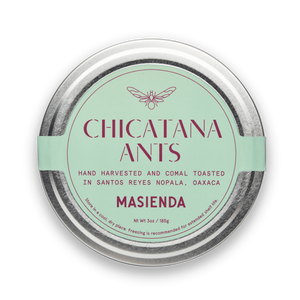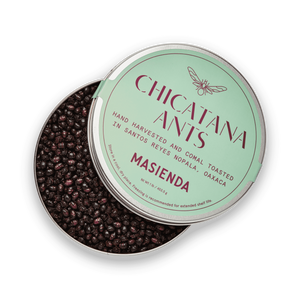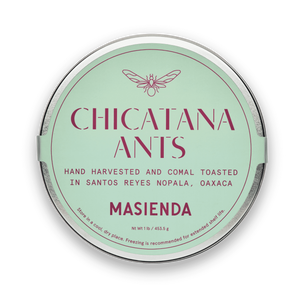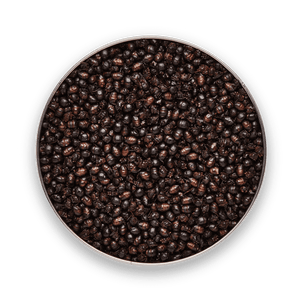
Chicatana Ants
Chicatana Ants (hormigas chicatanas) are a rare Mexican delicacy — not only do they fly, they also bite! These edible insects are collected in select parts of the country only once or twice a year during the first major rains of the season — that’s to say, a narrow geographic region within an even narrower window of time. Ours are sourced from coastal Oaxaca and dry toasted on the comal. Enjoyed in a salsa chicatana or accompanied by mezcal, Chicatanas are a salty, smoky tradition.
This item is currently unvavailable. Sign up to get notified when it is back in stock.
This item is currently unvavailable. Sign up to get notified when it is back in stock.

A Tasty Tradition
A Tasty Tradition
Chicatanas are a species of flying leaf-cutter ant: they're much larger than your typical picnic ant, dark brown or red in color, much richer in flavor and far, far more challenging to source. Local communities in Oaxaca, Chiapas, and Guerrero have been collecting and consuming chicatanas since the pre-Hispanic era. They're a rare delicacy. Because they only leave their nests once or twice a year, they must be collected by hand at night, and they are aggressive and hard to catch. Once caught, the ants are then placed in water and toasted on a hot comal to naturally remove the wings and legs and preserve the ants for longer-term use. Because they're so elusive, they garner a high price and are an important part of the local economy.
READ MORE



